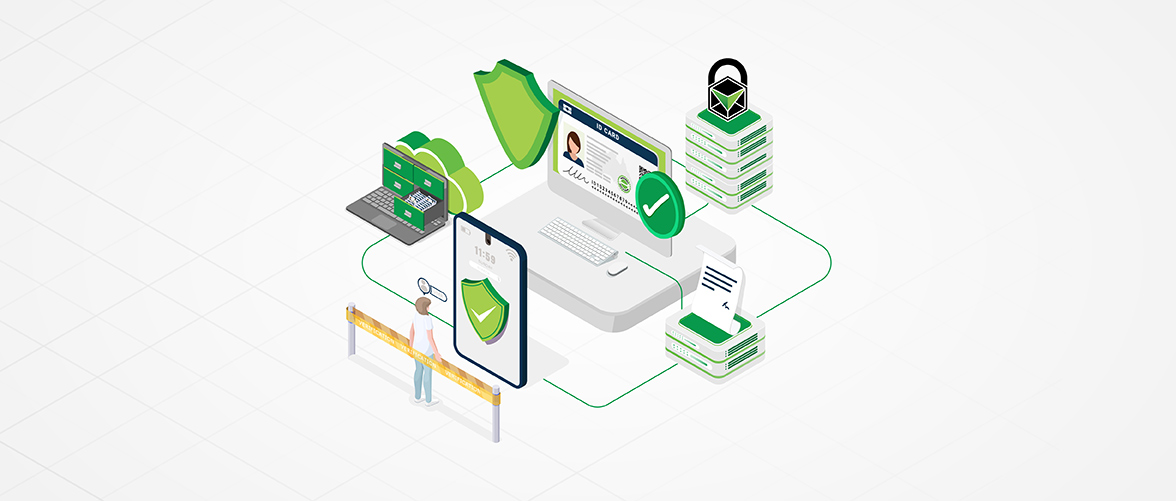The Role of Blockchain Technology in Identity Verification.
26 Apr 2024

Identity verification is a crucial process used in various sectors, including finance, healthcare, and government services, to ensure the authenticity of individuals. Traditional identity verification methods rely on centralised databases and can pose significant security risks. However, with the emergence of blockchain technology, there is potential for more secure, efficient, and decentralised identity verification solutions.
In this blog, we will discuss the role of blockchain technology in identity verification, including its potential benefits, challenges, and real-world examples.
How Blockchain Technology Can Improve Identity Verification?
Blockchain technology can be used to improve identity verification in various ways, including:
Decentralised Storage: Blockchain technology allows for decentralised storage of data, which means that user information can be stored in a secure and tamper-proof manner without the need for a centralised authority or third party. This makes it difficult for hackers to gain access to personal information, ensuring better security for identity verification.
Transparency and Traceability: Blockchain technology provides a transparent and traceable system where every transaction is recorded in a public ledger. This makes it easy to track the identity verification process and ensure that every step of the process is followed correctly. This also enhances accountability and reduces the possibility of fraud.
Smart Contracts: Blockchain technology enables the use of smart contracts, which are self-executing contracts with the terms of the agreement between the parties being directly written into lines of code. Smart contracts can automate the identity verification process, eliminating the need for human intervention and ensuring accuracy and efficiency.
Biometric Verification: Blockchain technology can be used to store biometric data such as facial recognition or fingerprint scans. This can help to verify a user's identity with greater accuracy and security, as biometric data is unique to each individual.
Reduced Costs: Blockchain technology can reduce the costs associated with identity verification. With decentralised storage and automated processes, the need for intermediaries is eliminated, reducing the costs of identity verification.
Privacy: Blockchain technology can ensure privacy in the identity verification process. With the decentralised storage of data and the use of encryption, sensitive user information is kept private and secure.
Immutable Records: Blockchain technology provides an immutable record of every transaction that cannot be altered. This makes it easier to audit the identity verification process and ensure that it is carried out correctly.
Overall, blockchain technology can improve identity verification by enhancing security, accuracy, efficiency, and privacy and reducing costs.
The Potential Impact of Blockchain-Based Identity Verification
Blockchain-based identity verification has the potential to reduce identity fraud and increase security. By allowing individuals to control their own identity data, blockchain-based identity verification can reduce the risk of data breaches and hacking attempts. Additionally, blockchain-based identity verification can improve privacy by giving individuals more control over their personal information.
Blockchain-based identity verification can also improve access to services and reduce administrative burdens. With decentralised identity verification, individuals can easily and securely access services without relying on third-party verification services. This can improve efficiency and reduce costs for both individuals and businesses.
Final Thought
Blockchain technology offers a potential solution to the challenges of traditional identity verification methods by providing decentralised, secure, and efficient identity verification solutions. Blockchain-based identity verification has the potential.